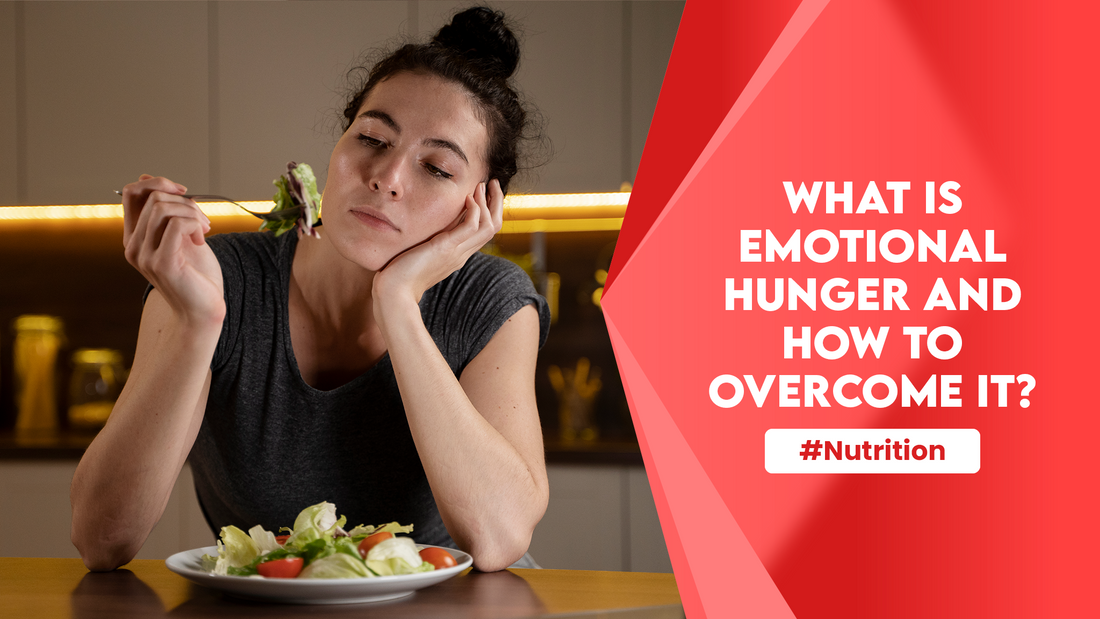
What is Emotional Hunger and How to Overcome It?
Share
Emotional hunger is using food to feel better. That is, it is a type of anxiety that makes us eat, even if we do not have an appetite, to manage personal problems. It usually happens when we suffer stress, we are sad or out of mere boredom. In today's blog we tell you what are its consequences are and how to overcome it.

What is Emotional Hunger?
Emotional hunger is an eating disorder that causes us to eat by mistaking feelings for hunger without being aware of it. It is characterized by feeling a great need to eat, impulsively and uncontrollably. Normally in these circumstances there is no real appetite, but it is used as an anesthetic for what we feel. We believe that it is a way to manage negative emotions.

What Causes the Emotional Binge?
Some of the emotions that lead us to eat frequently are boredom, loneliness, anxiety, anger, stress, anger, depression or low self-esteem.

A need to eat is generated, even if there is no physiological hunger. That is, you want to feed the body to be better. It is also common to have a feeling of guilt when the mood does not improve after the binge. Therefore, by not being resolved, a feeling of disappointment, sadness and frustration arises.
This type of hunger is common in self-demanding people who have tried many diets and failed. On the other hand, a bad routine can also increase emotional bingeing.
Consequences
Normally the consequences are not taken into account. The person makes it a habit to eat without meaning. This means that in some cases they end up being overweight or obese. Although there is also the possibility of suffering from other eating disorders such as bulimia or anorexia.

How to End Emotional Hunger?
Feeling hungry is not the same as being hungry. If you eat in an organized way, that is, five times a day, there is no chance of being hungry. In order to control this feeling and start to change this situation, we give you some tips
See a Nutritionist and/or a Psychologist in Parallel

Putting yourself in the hands of a professional can bring many benefits. Like, for example, it helps you to be aware and understand that an emotional need cannot be solved with food. And it also teaches you to identify the situation that causes emotional hunger.
Perform Relaxation and Breathing Techniques

In this way, when the desire to eat inappropriately appears, it can help you calm down. Taking two or three deep breaths before eating compulsively helps to lower anxiety, become aware and enable thinking to realize if I you are really hungry or not.
Do Not Get Carried Away by the "I feel like it"
It is important to know when it is a physiological need and when you eat compulsively to hide your emotions. We must know how to control our impulses.

It helps to ask ourselves, "Am I really hungry?" before eating any food.
Doing it regularly will help us develop awareness of when we are being guided by hunger and when by desire.
Do Things to Distract Yourself

When we are not thinking about eating because our minds are busy, it is easier to control emotional hunger. For example, you can go out for a walk, call someone, do some activity or sport, etc.
Drink Water Before Eating

This action can reduce anxiety and calm you down before eating any food.










